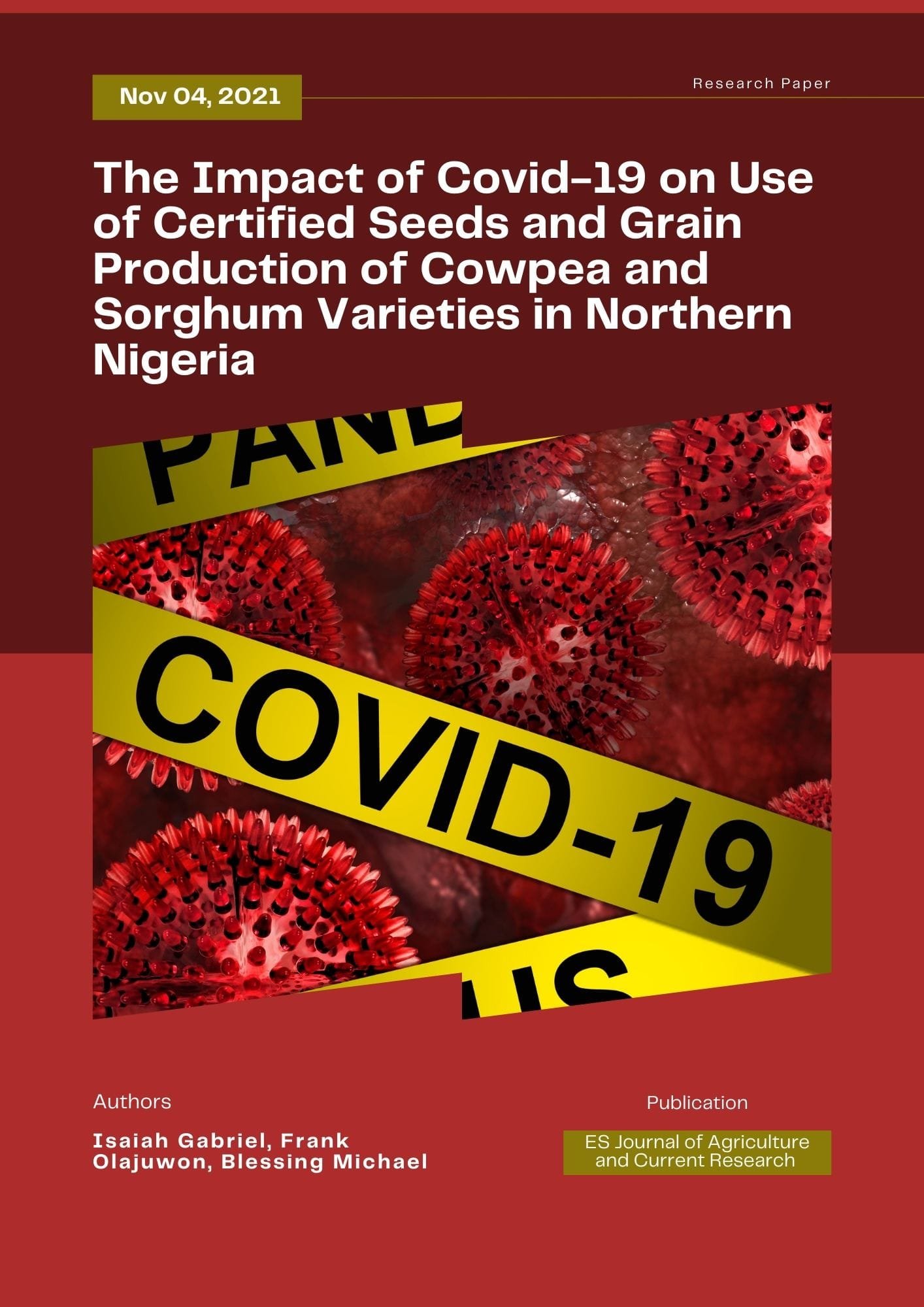Covid-19; Certified Seeds; Grains; Cowpea; Sorghum; Nigeria.


Year of publication:
Nov 04, 2021
Place of publication:
Ghana
Pages:
11
Author:
Isaiah Gabriel, Frank Olajuwon, and Blessing Michael
Publisher:
ES Journal of Agriculture and Current Research
Product type:
Research
Language:
English
ISBN/ISSN:
2994-9556
This study was conducted to evaluate the Impact of Covid-19 on certified seeds and grain production of cowpea and sorghum varieties in Northern Nigeria. Purposive sampling technique was employed in the selection of Nine (9) seed companies under the Accelerated Varietal Improvement and Seed Delivery of Legumes and Cereals in Africa (AVISA) project in Nigeria. The samples were randomly selected as follows; 400 farmers, 100 Agro dealers and 100 consumers from five States namely, Kano, Kaduna, Benue, Borno and Jigawa. Primary data were collected with the aid of a questionnaire and farmer group interviews and secondary data from the research desk. Data obtained were analyzed using inferential statistics (such as regression analysis, correlation coefficient, T-test statistics, and descriptive statistics such as mean, percentage, and charts. The results of the study revealed that the use of certified seeds by farmers has a strong positive correlation with the price of grains in the market at 0.01 significant level as well as the revenue at 0.05 significant level while the use of home saved seeds has a negative correlation with the price of grains at 0.05 significant level. The regression result shows that the higher the use of certified seeds by farmers for planting the higher their productivity at 0.05 significant level, whereas the use of home saved seeds has a negative relationship (-1219) with the revenue of the farmers at 0.05 significant level. Price of grains has a positive relationship with the quantity of grains purchased by consumers at 0.05 significant level. T-test results suggests that there is no significant difference between the volume of seed produced by seed companies across the three production years 2018 to 2020 {F2,18= (0.103), p>0.05}. Majority of farmers and consumers are males (83% and 75% respectively), with secondary school education (42% for farmers and 40% for consumers respectively. Majority of the farmers planted local varieties of cowpea (56%), sorghum (53%) and rice (36%). Faro 44 rice variety is the most widely grown. Most of the farmers admitted that the Covid-19 pandemic affected their production. (81%) of farmers make use of home saved seeds for production. Most of the seed companies had 25-50% reduction in seed sales volume compared to the previous year, also majority of the farmers could afford certified seeds, but they are sometimes unavailable. The study further revealed that most of the seed companies, farmers, and consumers did not receive government palliatives resulting from COVID-19 and didn’t diversify to other activities. Therefore, the study recommends that farmers should always plant certified seeds as the major way to guarantee productivity and food security. The Ministry of Agriculture in partnership with private sector like Seed companies and Non-governmental organizations should urgently establish Agro-inputs-outlets (Farmers Hub) in the rural areas to make seeds and other inputs available, accessible, and affordable to smallholder farmers. Also, Government at all level (Federal and States) should consider a legislative law that will direct Agricultural Development Projects (ADPs) to organize annual seed fair prior to planting season across the nation. Furthermore, Agricultural Policy makers should include scientist, farmers, Agro dealers, processors and consumers in the planning and execution of seed systems policy in Nigeria.
Covid-19; Certified Seeds; Grains; Cowpea; Sorghum; Nigeria.